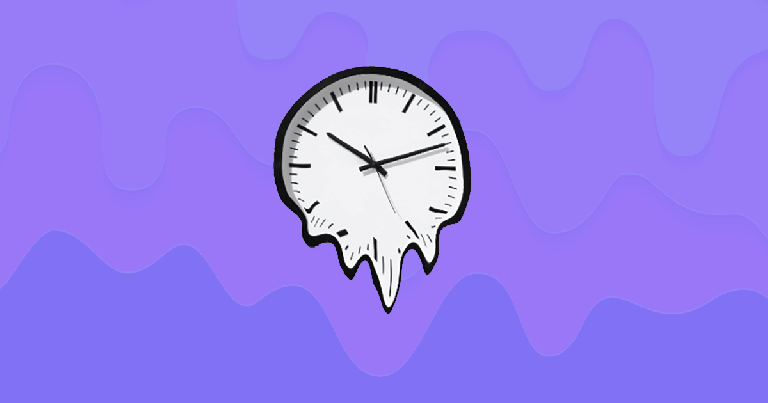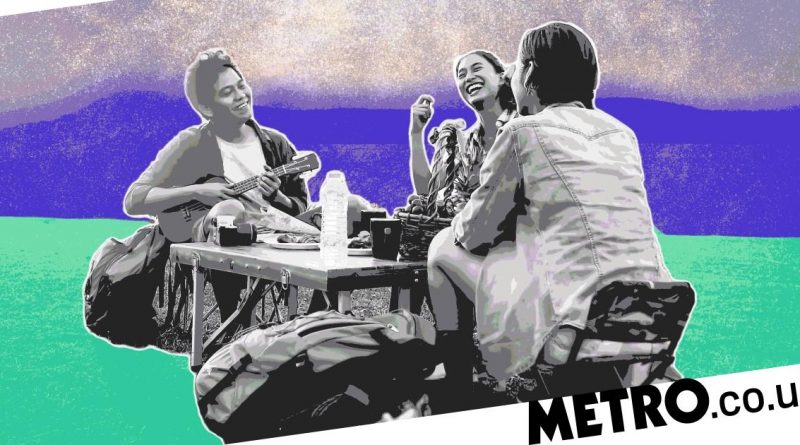Slowmaxxing is the latest self-care trend – here's why it's worth your time
When was the last time you cooked a meal that took longer than 20 minutes? Or sat down to drink your coffee rather than grabbing it on the go?
In the headlong dash of daily life we cram more and more into less and less time. We want to fit in a workout, grab lunch with a friend, keep up to date with our socials, make a start on the latest bestseller, take up a new hobby, all on top of balancing work and family commitments.
But a gear shift seems to be taking place. Since life has become faster, more and more people are putting on the brakes.
Prompted by the pandemic, Google reported a 400% increase in the number of YouTube videos with ‘slow living’ in the title from 2019 to 2020.
In the past few years people have had no option but to slow down. However, now, the idea of choosing to go a little slower seems to have caught on.
‘You need to be reading long, fat books,’ reads one Tweet. ‘You need to be making 48-hour chocolate chip cookies. You need to spend hours watching wildlife, you need to spend 15+ min making your coffee. You need to breathe in and out. You need to be slow.’ The idea seems to have struck a chord, retweeted 18.6K times.
Encouraging a slower pace of life at odds with modern day hustle culture, the slow movement focuses on doing things better rather than faster. To adopt a slower mindset is to switch off autopilot and be present and in the moment.
And because every movement needs a catchy term to describe it, this is becoming known as slowmaxxing – embracing slow living to the max, basically.
Seems simple. So why do we find it so hard to slow down?

Slow living is not a new concept. It’s been 18 years since Carl Honoré published In Praise Of Slow – ‘to the slow movement what Das Kapital is to communism’, according to the Financial Times.
‘I think we have a deeply unhealthy and neurotic relationship with time,’ Honoré tells Metro.co.uk. ‘We see it as a limited resource, which turns us into headless chickens where we just skim the surface of our lives.
‘But it fits in with the dominant culture, which tells us that the way to use time is to speed up.’
But slowing down is not simply taking longer to complete your daily tasks. It’s a philosophical shift rather than simply a change in pace.
‘The starting point is making that deep philosophical shift to think about life not as a race to the finish but as a series of moments that you have within your power to live completely fully,’ Honoré explains.
For Beth, 28 from Wiltshire, this shift came whilst sitting on the Tube in London. Feeling burnt out, she recalls looking at the tired faces around her buried in their phones and thinking there must be a better way of living.

‘I started exploring the concept of slowing down as a way to figure out the age-old conundrum of work/life balance,’ Beth explains. ‘From slow food to slow fashion, it soon became clear that the slow living movement encompassed so much more, and covered so much of what is important to me in life.’
Founding the lifestyle website Slow Living LDN in 2018, Beth now incorporates slow living into her daily routine.
From switching off screens and getting out into nature, to pottering around the garden and cooking a meal with seasonal ingredients, slow living encourages Beth to focus her energy on fulfilling activities rather than multitasking her way through an endless to-do list.
‘I also try to build in what I call “moments of everyday deceleration”,’ Beth says. ‘These are essentially pauses in your day to catch your breath and step back from that feeling of being always-on.
‘This could be a short walk, a cup of tea away from your desk, or just some mindful breathing.’
Before Niki, 29, started slow living, she constantly felt anxious and rushed.
‘When I first heard of slow living I thought there is no way this would work in our modern society,’ she tells us. ‘But I’ve found that it’s all about balance and it has brought incredible joy to my family to learn to slow down and enjoy our time together.’
Now she posts tips on slow living and stress management to her 111,000-strong TikTok community, with the handle @slowlivingsimplified.
Slow down ? #slowlivingblogger #burnoutrecovery #slowliving #slowlivingtiktok #slowlivingmom #slowlivingtok @slowlivingsimplified
For Niki, slow living is keeping things simple. Rather than overcrowding or overcomplicating her day she keeps her routines simple and schedules in things she enjoys around her work.
‘Slow living is about embracing the calm moments and making the most of what you have in front of you,’ she notes.
If you are stuck on how to start living slower, Honoré has some practical tips to offer.
Firstly, he recommends scheduling slow thinking time. Block off slots, find a quiet place, and focus your thoughts on a current problem, or on bigger strategic questions.
Also, do speed checks. At random moments during the day, stop and ask yourself if you’re doing whatever you’re doing too fast. If you are, take a few deep breaths and return to the task more slowly.

Solotasking, also known as monotasking, is a great way to avoid the sloppiness and inefficiency of multitasking. Instead focusing, as much as possible, on one thing at a time.
Finally, find a slow ritual and embed it in your daily schedule. This could be reading, yoga, gardening, cooking, painting, or anything else that takes you out of the hurry of day-to-day life.
Remember, slowmaxxing will look different for everyone. It doesn’t have to mean forgoing all technology, living in the woods and foraging for your own food.
Slow living is a mindset you can adopt whether you live in the city or countryside. Slow living isn’t at odds with being successful or productive.
Rather, it’s about living up to your own idea of success and prioritising what’s most important to you.
Whether it is what we eat, how we spend our free time, what we wear or how we work, the slow movements are asking us to live more consciously.
‘I think what slow does also is that it reconnects us with other people,’ Honoré adds. ‘It makes us a better parent, a better partner, a better friend, a better citizen.
‘I think that’s how we build a better world.’
Do you have a story to share?
Get in touch by emailing [email protected].
Source: Read Full Article



